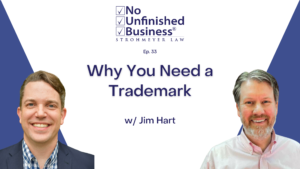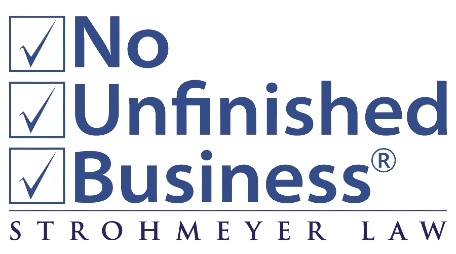Who is in Charge When I’m ALIVE, INCAPACITATED, or DEAD?
What if somebody needed to make a decision for you because you couldn’t do it? Who’s gonna be in charge? That depends on how you plan your powers of attorney, executor, trustee, and more…
Alive, Incapacitated, or Dead – Who is making my decisions?
It’s a simple, but crucial, question in planning: if you’re not able to make decisions yourself, who is allowed and empowered to make legal, financial, or medical decisions on your behalf?
Alive with Capacity: Who’s In Charge?
Let’s first consider the simplest situation – you’re alive and capable of making your decisions. Even in this situation, two parties (besides yourself) can make decisions on your behalf: a financial agent named under your power of attorney or a trustee under any trusts you’ve created.
The role of your financial agent and their powers are dictated by the power of attorney document that you’ve signed, granting them this authority. Likewise, your trustee can act on your behalf, but only concerning assets that have been funded into the trust they oversee.
If you have a trust in place, a useful tip here is to fund assets into the trust yourself, provided you have the capacity. This process avoids the need for the trustee to collect those assets on your behalf, speeding up the overall operation.
Alive but Incapacitated: Adding to the Team
In the event that you’re alive but no longer mentally capable of making decisions, your circle of decision-makers expands. Besides a financial agent or trustee, two other roles come into play: your agent under a medical power of attorney and, if needed, a potential guardian.
Your medical agent steps in only when you’ve lost the capacity to make medical decisions. For example, if you fall into a coma, they would be responsible for making medical decisions on your behalf. However, if they lack authority or if your instructions conflict, the court might need to appoint a guardian.
This guardianship step is more invasive, as it involves a legal process that hands over your rights to the guardian, making them accountable to the probate court. Therefore, choosing the right individuals for these roles is critical. If you can’t trust them to make sound decisions for you now, would you be able to rely on them in the future?
Schedule a free consultation with Strohmeyer Law to protect your family with an estate plan.
After You’ve Passed: Your Legacy, Their Responsibility
After your passing, your named executor and possibly a trustee would handle your affairs. These individuals, named in your last will or a trust agreement, are responsible for collecting any remaining assets, paying off your final debts, and distributing your assets as per your instructions.
Conclusion: Be Proactive, Be Clear, Avoid Frustration
Setting up the right individuals to make decisions on your behalf isn’t merely about avoiding potential frustration and delays due to confusion over who’s in charge. It’s also about ensuring these appointed individuals are aware of their roles and responsibilities. By notifying them in advance, you speed up processes later and might even identify and resolve potential family conflicts that could arise over decision-making rights.
Remember, leaving uncertainty around who’s in charge can create frustration and delay for your family. More seriously, it could lead to additional costs and potential disputes as your family battles over who’s in charge. By setting out clear directives, you can ensure your family has less unfinished business to clean up later, making the transition smoother for everyone involved.
Ensure your legacy is handled as you intend – be proactive, plan wisely, and most importantly, communicate your intentions clearly to all parties involved.
End-of-Year Strategies for Irrevocable Gifting Trusts
As the year draws to a close, there are some crucial actions to take with an irrevocable gifting trust.
What to Do If You Receive an IRS Letter
Receiving a letter from the IRS might send shivers down your spine. So what's your first step? Is it always a cause for alarm? Let's walk through what you should do.
Why You Need a Trademark
We'll explain the the four main areas of intellectual property for business owners, why trademarks are crucial, and how to get your marks registered.





